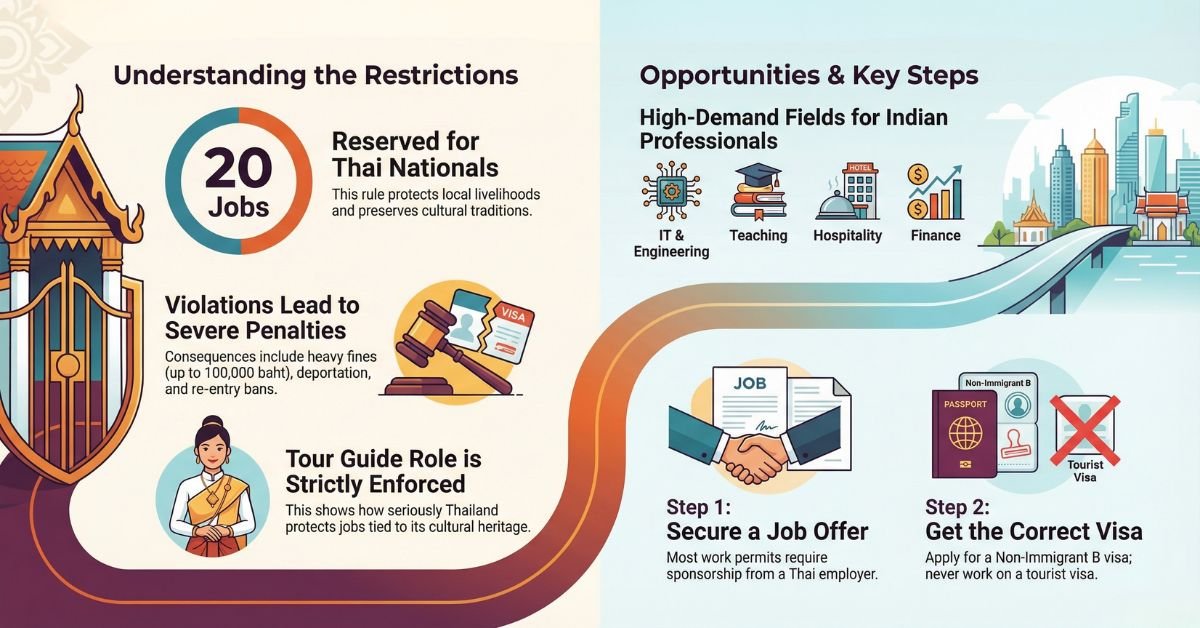Why office affairs are rising in India, their causes, impacts, and solutions. Explore workplace dynamics and relationship tips.
Table Of Contents
Introduction

Picture this: a bustling corporate office in Bengaluru, where late-night meetings and team outings blur the lines between professional and personal.
In India, a startling trend is emerging: office affairs are rising, reshaping relationships, families, and workplaces.
We have been investigating this phenomenon to understand why it is occurring, what it means, and how to address it.
According to surveys, 34% of Indian employees have had an office affair, and broader infidelity rates may hit 53% in 2025.
However, what is driving this surge?
Moreover, how can couples and workplaces navigate this sensitive issue?
This exploration will unpack the causes, consequences, and solutions, blending real-world stories, data, and practical advice to keep it human, relatable, and engaging.
The Scale of Office Affairs In India
The numbers are eye-opening.
A survey by a popular media outlet in India found that 34% of Indian employees, roughly one in three, have engaged in an extramarital affair at work.
Dating apps like Gleeden report Bengaluru as India’s “infidelity capital,” with 27% of their 2020 user base hailing from the city.
By December 2024, the platform for married individuals noted a 270% spike in Indian users, with 25% of corporate workers admitting to cheating.
A 2025 Ashley Madison and YouGov survey of 13,508 adults revealed that 53% of Indians have been unfaithful, tying with Brazil for the highest global infidelity rate.
However, it is not just about numbers.
Attitudes are shifting.
Shockingly, 71% of women and 61% of men surveyed do not see extramarital affairs as immoral.
This cultural shift, especially in urban hubs like Mumbai, Delhi, and Bengaluru, signals a deeper change in how relationships are viewed.
So, what is fueling this trend?
Let us break it down.
| Statistic | Details |
|---|---|
| 34% of employees | Have had an office affair. |
| 270% user increase | Glannd app for married individuals by Dec 2024. |
| 53% infidelity rate | Ashley Madison & YouGov, 2025 (13,508 adults). |
| 71% women, 61% men | Don’t view affairs as immoral. |
| Bengaluru | “Infidelity capital” with 1.35 lakh Gleeden users in 2020. |
Why Are Office Affairs Surging? Key Causes
The rise of office affairs is not random; it is tied to workplace dynamics, societal shifts, and personal struggles.
Here is a deep dive into the six main reasons, supported by real-world examples and data.
1. Workplace Culture And Wild Parties
India’s corporate world thrives on high-energy environments, especially in the IT and BPO sectors.
Late-night shifts, team outings, and office parties create opportunities for bonding that can cross boundaries.
A Telegraph survey in metro cities found that 89% of Mumbai employees and 74% of Bengaluru employees attend “wild” office parties, where 19% said their affairs began.
These events, fueled by alcohol and camaraderie, often blur professional lines.
Real-World Example: In Gurgaon, a software engineer named Priya (name changed) shared how a team celebration at a five-star hotel led to an emotional connection with a colleague. “We were both stressed, working late, and the party felt like an escape,” she said. What started as a dance turned into a year-long affair.
| Factor | Impact |
|---|---|
| Wild parties | 89% of Mumbai and 74% of Bengaluru employees attend (Telegraph). |
| Affair trigger | 19% of affairs start at office parties. |
2. Night Shifts And Unconventional Hours
Night shifts, common in IT and BPO industries, disrupt work-life balance.
The Journal of Marriage and Family found that couples working night shifts are six times more likely to divorce within five years, especially if they have kids.
These “graveyard shifts” isolate employees from friends and family, making colleagues their primary social circle.
Case Study: In 2020, a Gurgaon-based engineer left his pregnant wife in Indore during the COVID lockdown, claiming work demands. He returned to Gurgaon, started an affair with a colleague, and even married her, having a child together. His wife discovered this only when she returned two years later.
| Factor | Impact |
|---|---|
| Night shifts | Six times higher divorce risk (Journal of Marriage and Family). |
| Social isolation | Employees rely on colleagues for companionship. |
3. Career Ambitions And Power Dynamics
India’s job market is brutal 47% of professionals are unhappy with their salaries, and 75% lack emergency savings.
Some see affairs as a shortcut to career growth in this high-stakes environment.
A Synovate survey in metro cities found that 55% of workplace affairs involve bosses, with 44% of respondents saying affairs are the quickest way to advance.
Shockingly, 30% admitted receiving promotions or raises due to such relationships.
Real-World Example: Ranjana, a Mumbai development manager, told the media she had an affair with a junior colleague for “emotional fulfillment” while he gained career benefits. She justified it by saying, “If it helps us both, what’s wrong?”
| Factor | Impact |
|---|---|
| Boss-employee affairs | 55% of workplace affairs (Synovate). |
| Career benefits | 30% gained promotions/raises via affairs. |
4. Overwork And Stress
India’s workforce is stretched thin. Seventy percent feel overworked, with IT employees clocking 70-hour weeks (10-11 hours daily).
Add a 55-minute average commute, and there’s little time for family.
This exhaustion leaves couples disconnected, pushing some to seek emotional or physical outlets at work.
Data Point: A survey found that 50% of corporate employees feel more attracted to colleagues with similar jobs, as shared work stresses foster understanding.
| Factor | Impact |
|---|---|
| Overwork | 70% of employees feel overworked. |
| Attraction | 50% prefer colleagues with similar roles. |
5. Arranged Marriages And Compatibility Gaps
With 93% of Indian marriages arranged, many couples lack shared values or emotional connection.
Ashley Madison’s survey of 75,000 Indian users found that 80% seeking affairs had arranged marriages.
Limited pre-marital interaction, 66% of women met their husbands on their wedding day, can leave partners feeling unfulfilled.
Real-World Example: A Chennai couple, married for 10 years, admitted they “live together but don’t connect.” The husband had an affair with a colleague who shared his passion for coding, something his wife didn’t understand.
| Factor | Impact |
|---|---|
| Arranged marriages | 80% of affair-seekers had arranged marriages. |
| Limited interaction | 66% of women met their husbands on their wedding day. |
6. Lack Of Physical Intimacy
Cultural taboos, living with in-laws, and busy lifestyles reduce physical intimacy in many Indian marriages.
This gap drives some to seek fulfillment elsewhere, often in the workplace, where proximity fosters attraction.
Data Point: A survey noted that couples with regular physical intimacy (three times weekly) have higher relationship success rates. In India, societal constraints often hinder this.
| Factor | Impact |
|---|---|
| Intimacy gap | Cultural taboos reduce physical connection. |
| Success rate | Regular intimacy boosts relationship stability. |
The Devastating Consequences
Office affairs do not just break hearts; they shatter families and careers.
Here is how:
- Emotional Toll: Betrayal leads to guilt, anxiety, and depression for both partners. Spouses feel humiliated, while the unfaithful partner grapples with secrecy.
- Family Impact: Children face lifelong trauma from broken homes. A study linked parental affairs to increased stress and depression in kids.
- Workplace Disruption: Affairs create conflicts of interest, favoritism, and reputational damage. In extreme cases, they lead to lawsuits or job loss.
- Legal Ramifications: While adultery isn’t a crime in India since 2018, it remains grounds for divorce under the Hindu Marriage Act, often cited as cruelty.
Extreme Cases:
- Chennai: A police officer murdered his wife to pursue an affair with a colleague.
- Bengaluru: Harini, a corporate worker, was killed by her coworker Yashas when she tried to end their affair.
- Mumbai: A man faked his death, claiming COVID, to run away with a colleague to Indore.
| Consequence | Details |
|---|---|
| Emotional | Guilt, anxiety, and depression for partners. |
| Family | Trauma, stress, and depression in children. |
| Workplace | Conflicts, favoritism, and job loss risks. |
| Legal | Grounds for divorce include cruelty. |
Solutions To Strengthen Relationships
At THOUSIF Inc. – INDIA, we believe prevention and healing are possible.
Here are practical, research-backed solutions to curb office affairs and rebuild trust.
1. Embrace The Five Love Languages
Gary Chapman’s Five Love Languages (1992) offers a roadmap to reconnect:
- Words of Affirmation: Compliments and appreciation for your partner daily.
- Quality Time: Plan date nights, weekend getaways, or simple walks.
- Gifts: Small, thoughtful gestures like flowers or handwritten notes.
- Acts of Service: Cook dinner or help with chores to show care.
- Physical Touch: Hugs, hand-holding, or intimacy to maintain closeness.
Tip: Take an online quiz to discover your and your partner’s love languages for tailored bonding.
| Language | Example |
|---|---|
| Words | “I’m proud of you for nailing that presentation!” |
| Quality Time | Weekly movie night at home. |
| Gifts | A favorite book as a surprise. |
| Acts of Service | Doing the dishes without being asked. |
| Physical Touch | A morning hug before work. |
2. Create No Phone Zones
New York-based marriage coach Peter McFadden, who’s worked with 5,000 couples, recommends “no phone zones,” especially before bed.
This uninterrupted time fosters communication and intimacy, countering work emails or social media distractions.
How To Start: Agree to keep phones off during dinner or bedtime chats. Use this time to share your day or dreams.
3. Seek Couple Therapy
Therapy is stigmatized in India, but it’s a game-changer. Counselors help couples address communication gaps, rebuild trust, and navigate infidelity.
Online platforms like BetterHelp now offer affordable, discreet sessions.
Real-World Impact: A Delhi couple, on the brink of divorce after an affair, attended six months of therapy. They learned to communicate openly, saving their marriage.
4. Choose Compatibility In Arranged Marriages
For those entering arranged marriages, take time to know your partner.
Discuss values, hobbies, and goals.
A 2010 report found that 78% of women knew their husbands only a month before marriage, so extending this period can strengthen the foundation.
Tip: Use pre-marital counseling to align expectations and uncover shared interests.
5. Foster Workplace Boundaries
Employers can help by setting clear boundaries:
- Limit Alcohol at Events: Reduce risky behavior at office parties.
- Promote Work-Life Balance: Encourage reasonable hours to prioritize family time.
- Ethics Training: Educate employees on professional conduct.
| Solution | How? |
|---|---|
| Love Languages | Rebuilds emotional connection. |
| No Phone Zones | Enhances communication. |
| Therapy | Resolves conflicts professionally. |
| Compatibility | Prevents disconnection in marriages. |
| Workplace Rules | Reduces opportunities for affairs. |
Societal Shifts And The Road Ahead
India is at a crossroads.
Traditional values of family and fidelity clash with modern, urban lifestyles.
The rise of dating apps for married individuals, like Glannd and Ashley Madison, reflects a growing acceptance of extramarital relationships.
Yet, this comes at a cost: broken families, mental health struggles, and societal debates about morality.
Moving forward, we need open conversations about relationships, workplace ethics, and personal fulfillment.
Couples must prioritize communication, while companies should foster healthier work environments.
Conclusion
The surge in office affairs in India is a wake-up call.
From overwork to arranged marriages, the causes are deeply rooted in our social and professional fabric.
But with empathy, communication, and proactive steps, we can rebuild trust and strengthen relationships.
At THOUSIF Inc. – INDIA, we are passionate about empowering couples and workplaces to thrive.
Want to dive deeper into relationship tips or workplace trends?
Check out our other articles on our website, and let’s keep the conversation going.
Here’s to stronger bonds and brighter futures!
Trivia: Did You Know?
In the 1960s, Indian workplaces had strict gender segregation, with separate office spaces for men and women in many companies. The rise of mixed-gender offices in the 1990s, driven by the IT boom, transformed workplace dynamics, inadvertently setting the stage for closer colleague interactions and sometimes, affairs.









